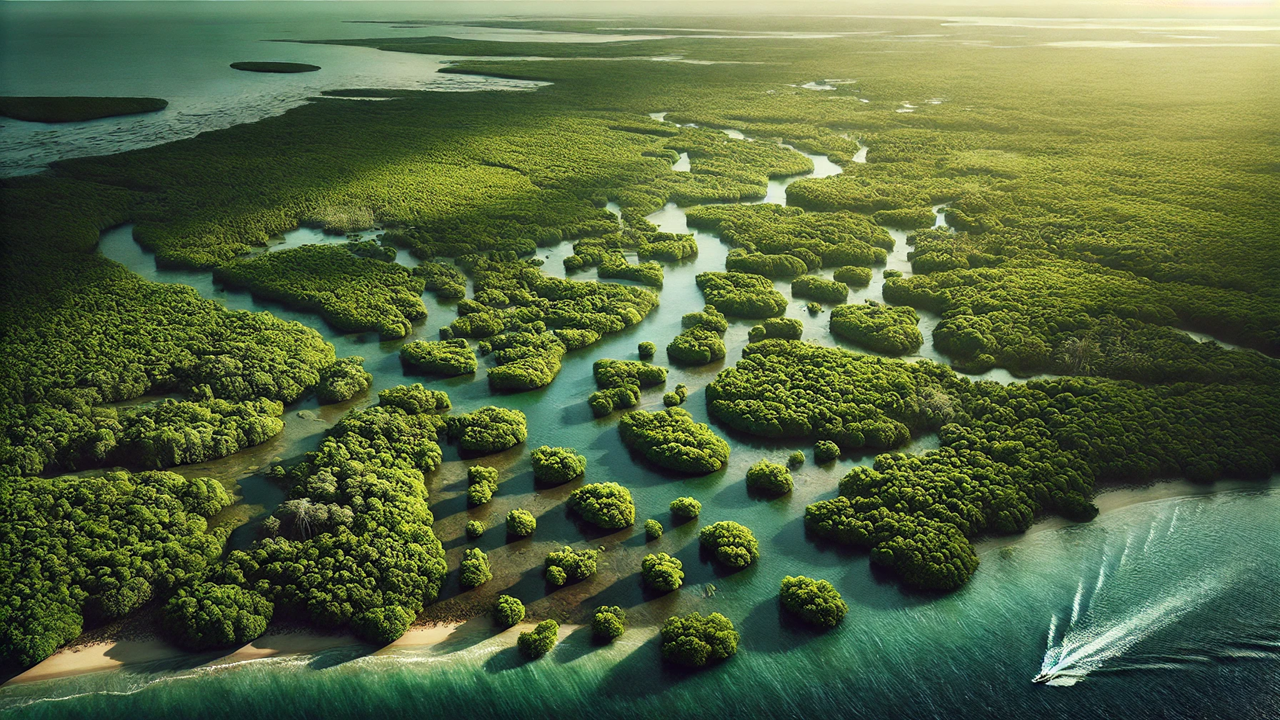Harnessing Blue Carbon: Mozambique's Path to Climate Resilience
Mozambique is harnessing the power of its mangrove forests to strengthen its climate commitments under the Paris Agreement, as detailed in the report "Strengthening NDC Ambitions through Blue Carbon Frontiers." By integrating blue carbon into its Nationally Determined Contributions (NDCs), the country addresses climate change while promoting coastal resilience and ecological conservation. The report highlights challenges like deforestation and overexploitation but also identifies opportunities through international carbon markets and green financing.

Mozambique’s Bold Climate Goals Through Blue Carbon
In a groundbreaking report titled "Strengthening NDC Ambitions through Blue Carbon Frontiers," Mozambique emerges as a global leader in leveraging its coastal ecosystems to combat climate change and bolster climate resilience. Published by the World Bank, this detailed analysis sheds light on how the country's vast mangrove forests are central to its climate strategies under the Paris Agreement.
The Blue Carbon Advantage
Mozambique, home to one of Africa’s largest mangrove forests, has embraced the unique benefits of blue carbon ecosystems. Mangroves, known for their unmatched carbon sequestration capabilities, act as natural buffers against rising seas and extreme weather. Their dual role—mitigating climate change and enhancing coastal resilience—offers Mozambique a golden opportunity to elevate its Nationally Determined Contributions (NDCs).
By preserving these ecosystems, Mozambique not only meets its climate obligations but also secures vital ecological and socio-economic benefits for its coastal communities.
Integrating Mangroves into Climate Policy
The report emphasizes the urgent need to fully integrate blue carbon into Mozambique's NDCs. Coastal ecosystems, especially mangroves, are positioned as key pillars in the nation’s climate mitigation and adaptation strategies. By quantifying their contributions, Mozambique aims to strengthen its case for international climate finance and policy support.
Challenges on the Horizon
However, the journey is not without challenges. The country faces persistent threats from deforestation, overexploitation, and insufficient resources for large-scale restoration. These stressors not only degrade the environment but also undermine the carbon storage potential of mangroves.
On the flip side, international carbon markets and green financing present untapped opportunities. With the right investments, Mozambique could pioneer a model for balancing development with ecological restoration.
Policy and Collaboration
To maximize the impact of blue carbon initiatives, the report advocates for robust policy frameworks and multi-stakeholder collaborations. National policies must prioritize coastal ecosystem protection while aligning with global climate objectives. Partnerships with NGOs, research institutions, and global funding bodies are essential to scaling up mangrove restoration projects and ensuring long-term sustainability.
Strategic Recommendations
The report outlines several actionable recommendations:
Scaling Up Restoration: Accelerate mangrove restoration efforts and systematically monitor their impact on carbon sequestration.
Boosting Research Investments: Increase funding for blue carbon research to build scientific capacity and inform policymaking.
Fostering Partnerships: Collaborate with stakeholders to implement effective conservation measures and attract international climate financing.
A Vision for Global Leadership
Mozambique’s commitment to blue carbon not only strengthens its own climate goals but also positions the country as a leader in global climate action. By harnessing the power of mangroves, Mozambique sets a precedent for other nations grappling with the dual challenges of development and climate resilience.
As the report "Strengthening NDC Ambitions through Blue Carbon Frontiers" highlights, the future of climate action lies in the synergy between nature and policy. With mangroves as its allies, Mozambique is poised to lead the charge toward a more sustainable world.
- FIRST PUBLISHED IN:
- Devdiscourse










